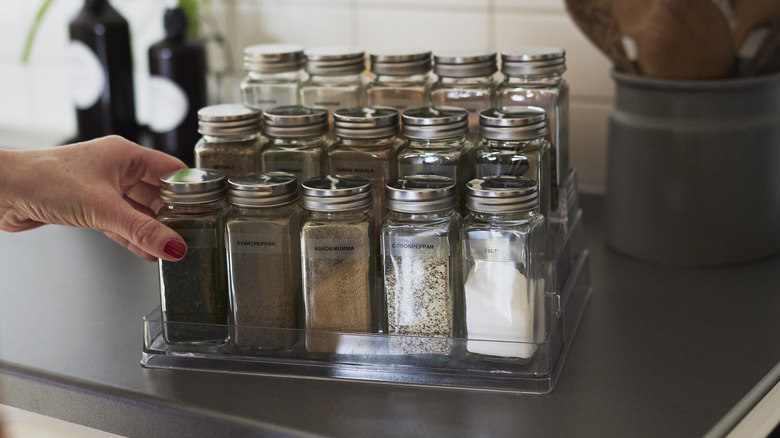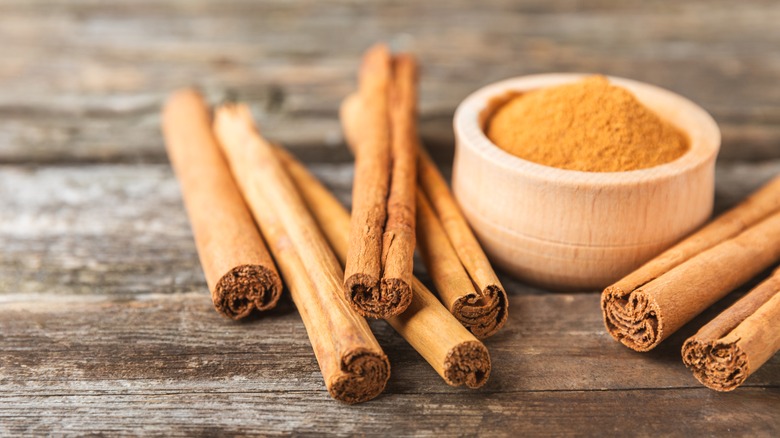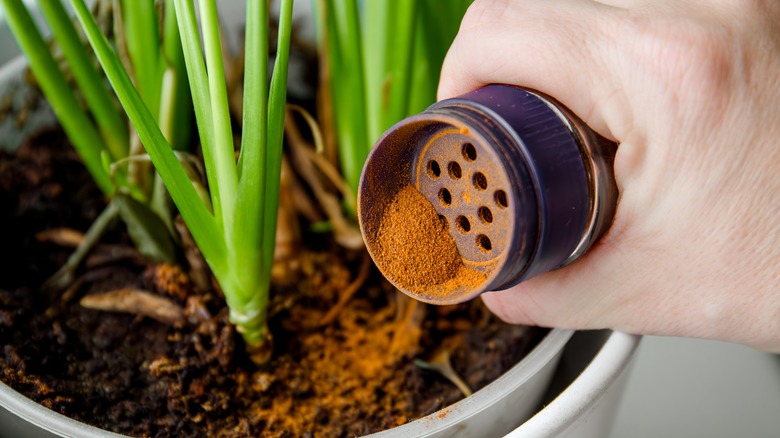Check Your Cinnamon For This Before Using It For Natural Pest Control
Cinnamon can do more in your home than make delicious pastries, spice up a hot chocolate, and be the finishing touch to a homemade apple pie. This versatile pantry ingredient is also a handy pest control option as cinnamon can deter multiple household pests. Yet there might be a mistake you're making when you sprinkle this spice to ward off pesky critters like ants, silverfish, and spiders. Before you use any cinnamon as pest control, you should check its best-by date. Spices like cinnamon can be past their prime. Older cinnamon won't have the same potent aroma, which diminishes its ability to keep pests away.
While they don't expire like perishable foods and make you sick, spices like cinnamon feature limited shelf lives. It's safe to eat "expired" cinnamon, but it won't taste the same. The spices' best-by date informs consumers when the products will be at their best quality, with lifespan variying based on the spice's form. A general rule is 2 to 3 years for ground cinnamon and 4 to 5 years for whole cinnamon sticks, according to Webstaurant Store.
How can cinnamon go bad?
Cinnamon goes "bad" simply due to age, but can also lose flavor in certain conditions. Storing spices near the stovetop is a popular aesthetic choice in many kitchens, yet comes with a drawback. Spices like cinnamon can lose flavor quicker when in a location with high exposure to heat, moisture, and light. Check the potency of your cinnamon with a smell test. Can you smell anything when you sniff the spice? If so, it's probably worth keeping, however, if you can't smell a savory aroma or the scent is weak, it's not going to give you the pest control results you want. You can also look at its color to see if it's faded to determine if it's still useful as pest control.
You can prolong the life of your cinnamon by storing it properly. This will help avoid having its scent diminish. Instead of stashing it above your stove, store the spice in a cool space away from light, such as in a pantry or a drawer. Use an airtight container to preserve the flavor. Each time you buy ground cinnamon from the store, make sure you label the container with the purchase date so you have a better idea of the cinnamon's age in your pantry. If your cinnamon's too far gone to use as effective pest control, don't worry, because you can still use it in a variety of ways in your home.
What to do with old cinnamon
If you find your cinnamon is not as flavorful, you don't have to waste it. Try using it in a simmer pot recipe along with delightful fragrances such as nutmeg and cloves. While the cinnamon may lack in potency, heating it can help restore some of its fragrance. Cinnamon is also excellent for various garden tasks, such as keeping fungus out of your garden. Have a pile of cinnamon sticks you just can't bear to throw out? Repurpose them into a rustic tree ornament tying a bundle with a bit of twine or ribbon, or add them to a holiday wreath.
When you use cinnamon around your home, be careful with it around your pets. Feline friends can develop a stomach ache from eating cinnamon and breathing issues if they inhale the spice. As for dogs, they're typically fine if they eat a bit of cinnamon, however, large quantities can cause respiratory issues.


